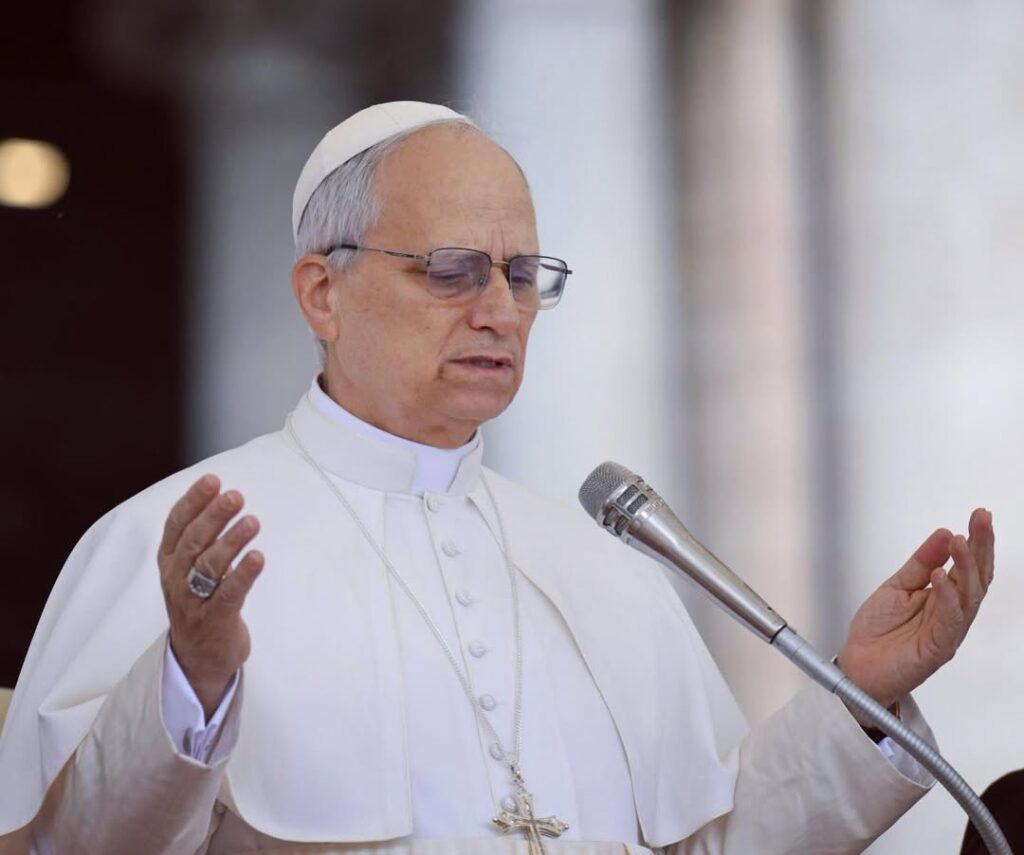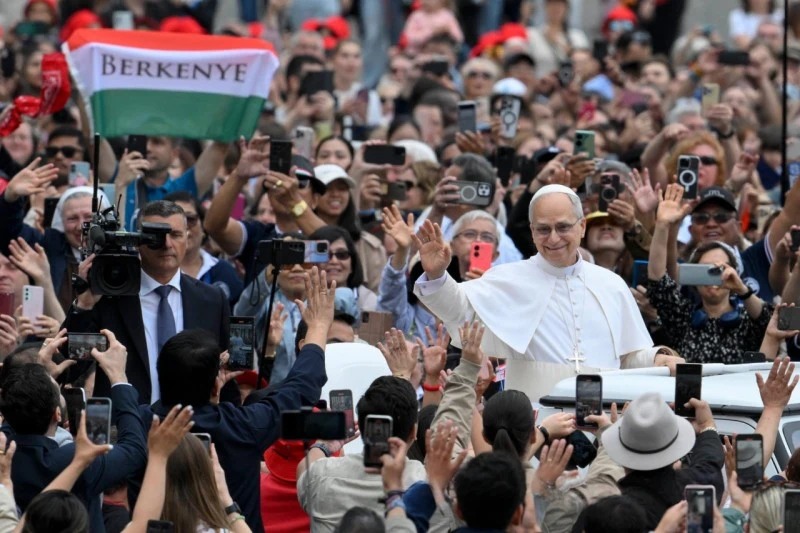Peter has spoken through the mouth of Leo
The lion is a notable symbol in Christianity; it signifies strength and divine protection

We have been filled with great joy since we received the news: Habemus Papam. Cardinal Robert Prevost was elected Supreme Pontiff, successor of Saint Peter the Apostle, and he has chosen the name Leo to serve in the Church.
We are honored that His Holiness Leo XIV has manifested himself to the world as a universal Peruvian—from Chiclayo, City of Friendship—in his moving appearance from the Loggia of Blessings in Saint Peter’s Basilica. He chose to be Peruvian, a decision we greatly appreciate. His dedication to evangelization among us, directed toward all humanity, leads to a profound gratitude that we long for to be realized—love is repaid with love—in a constant personal prayer, so that God may accompany him in the arduous task he has undertaken.
Pope Francis expressed: “The most beautiful treasure of the Peruvian people is the great saints who left their mark on Latin America, building the Church, working for unity and hope.” These words engage us in the various moments of our ordinary lives that will unfold during the pontificate of Leo XIV. The fact that the Holy Father chose the name Leo for the exercise of his pontificate as servant of the servants of God—servus servorum Dei—draws attention everywhere.
The lion is a notable symbol in Christianity; it signifies strength and divine protection. It is associated with Judah, one of the twelve tribes of Israel. In Genesis (49:9), Jacob blesses his son Judah, calling him “a lion cub.” From this tribe came King David, whose lineage Jesus Christ assumed. In Revelation (5:5), Jesus is described as the “Lion of the tribe of Judah,” emphasizing his victory over sin and death. This title reinforces his role as the promised Messiah, descendant of David, and his divine authority. The image of the lion in this context represents the strength, justice, and redemptive power of Christ. Furthermore, the lion has been used in Christian art as a symbol of protection and vigilance, reflecting God’s presence as guardian of his people.
The first pope with the name Leo was Leo the Great, Supreme Pontiff from 440 to 461. He is one of the Church Fathers, proclaimed a Doctor of the Church in 1754 by Pope Benedict XIV.
At the General Audience on Wednesday, March 5, 2008, Benedict XVI spoke of Saint Leo the Great in this way: “He was truly one of the greatest pontiffs to have graced the See of Rome, greatly contributing to strengthening its authority and prestige […] He is also the first pope whose preaching, addressed to the people who surrounded him during the celebrations, has come down to us. We know the work of Pope Saint Leo well thanks to his beautiful sermons—almost one hundred of which have been preserved in splendid and clear Latin—and thanks to his letters, some one hundred and fifty. In these texts, the pontiff reveals himself in all his greatness, dedicated to the service of truth in charity, through an assiduous exercise of the word, which shows him at the same time as a theologian and pastor. Saint Leo the Great, constantly concerned for his faithful and for the people of Rome, as well as for communion between the different Churches and for their needs, tirelessly supported and promoted the Roman primacy, presenting himself as a as the true heir of the Apostle Saint Peter: the numerous bishops [350], largely Eastern, gathered at the Council of Chalcedon, were fully aware of this.”
The Council of Chalcedon, in rejecting the heresy of Eutyches, which denied the true human nature of the Son of God, affirmed the union in His one Person, without confusion or separation, of the two natures, human and divine. […] This faith in Jesus Christ, true God and true man, was affirmed by the Pope [Leo the Great] in an important doctrinal text addressed to the Bishop of Constantinople, the so-called “Tomus ad Flavianum,” which, when read at Chalcedon, was received by the bishops present with an eloquent acclamation, recorded in the minutes of the Council: “Peter has spoken through the mouth of Leo,” the Council Fathers exclaimed in unison.
I conclude these lines by evoking a prayer from the Mass for the annual commemoration of the first Pope Leo: “God, who never allow the gates of hell to prevail against your Church, established on the firmness of the apostolic rock, we ask you, through the intercession of Pope Saint Leo the Great, that, remaining firm in your truth, we may enjoy continual peace” the Holy Father Leo XIV during his pontificate.
Related

Are they bad or stupid?
Padre Antonio María Domenech
23 May, 2025
5 min

How to be a better leader?
Hugo Saldaña Estrada
22 May, 2025
2 min

Cardinal Felipe Arizmendi: Leo XIV: “This is the hour of love”
Felipe Arizmendi
22 May, 2025
5 min

Embracing Plan B: The Story of Lola, Mother of Five, Two with Down Syndrome
Mar Dorrio
21 May, 2025
2 min
 (EN)
(EN)
 (ES)
(ES)
 (IT)
(IT)

